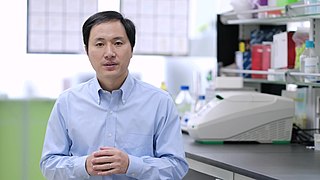Aggregated News

BEIJING — Three government institutions in China, including the nation’s science ministry, may have funded the “CRISPR babies” study that led to the birth last November of two genetically modified twin girls, according to documents reviewed by STAT.
These findings appear to support what many researchers inside and outside China have suspected since scientist He Jiankui revealed the births in late November, sparking international condemnation for violating scientific guidelines against the use of gene-edited human embryos to start pregnancies. “I don’t think He Jiankui could have done it without the government encouragement to press ahead” with research they thought would merit a Nobel Prize, said Jing-Bao Nie, a bioethicist at the University of Otago in New Zealand.
If the documents are correct, they would suggest China is supporting research that the U.S. and other countries consider unethical, and raise doubts about the preliminary conclusion of a government investigation that He acted mostly on his own. That inquiry, which was led by the Guangdong provincial health commission and involved the science ministry and the National Health Commission, determined that He raised funding...



